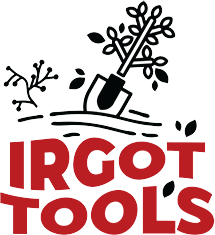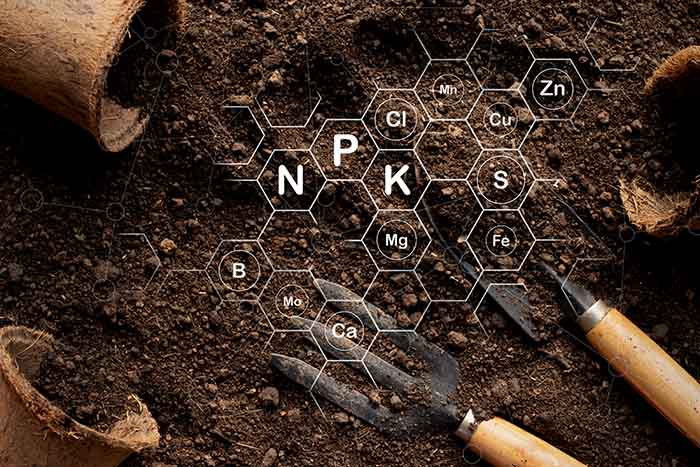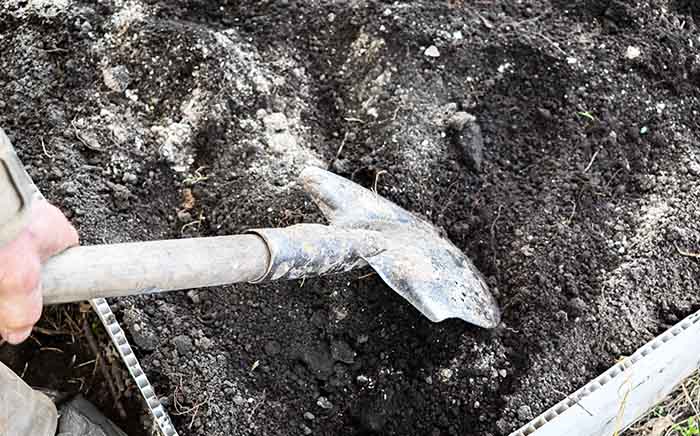The best soil improver – organic fertilizer for the garden
What do we really know about organic fertilizer?
If you have not yet started thinking about spring soil preparations for planting crops, it is time to go through the importance of organic fertilizer for the garden with us. Nothing makes us so happy as coming out on cold winter days and dedication to gardening. For all those who are still not familiar with the quality offer of garden tools from the domestic manufacturer Irgot, we invite you to visit our website and choose tools on time that simplify the use and daily application in the work season.
Source: freepik.com
Author’s URL: www.freepik.com/cookie-studio
The most important property for garden soil is its fertility. We need to know the degree of soil fertility in order to better grow and develop plants, and thus we will be rewarded with good yields. This property of the soil should be regularly monitored through the control of the elements that determine the fertility of the earth as well as through the action of fertilizers. Fertilization is a process by which we maintain or increase the fertility of the soil with the help of substances of organic and mineral origin. Organic fertilizer for the garden is of organic origin and contributes to the introduction into the soil of nutrients necessary for the growth and development of plants.
Division and types of fertilizers for the garden
The primary division of fertilizers:
According to the purpose, the fertilizer is divided into:
Basic fertilizers, that is to say, organic and supplementary, which contain nutrients and nourish the plant (N, P, K).
According to the chemical composition, the fertilizer is divided into:
organic in which biogenic substances are in organic form, that is to say, they are composed of organic compounds and minerals where nutrients are in the composition of mineral compounds.
According to the origin, we have organic fertilizers for the garden that come from plant and animal materials, and factory or industrial.
Source: freepik.com
Author’s URL: www.freepik.com/k-life
Basic fertilization is performed mainly before the primary tillage, which is performed by plowing, in other words, by applying organic fertilizers for the garden to full depth. This is how manure is applied as well as NPK or PK fertilizers.
Before sowing, pre-sowing fertilization is performed as a supplement to the basic fertilization, that is to say, it is performed between the basic tillage and sowing. By pre-sowing fertilization, fertilizers are mixed with garden tools for pre-sowing soil preparation.
Soil improvers
Soil improvers are called organic fertilizers and are the central part of basic fertilization, especially when it comes to organic production. These fertilizers affect the physical and chemical properties of the soil and indirectly affect the mineral nutrition of plants.
The introduction of organic matter into the soil has a favorable effect on the quality of physical and water properties of the soil, but also the chemical and biological processes in the soil.
The importance of organic fertilizer for the garden is as follows:
- better soil absorption,
- maintaining a favorable land structure,
- creating a constant source of carbon dioxide,
- humus synthesis,
- creation of soil microorganisms,
- source of plant nutrients after its mineralization,
- participation in the processes of decomposition of the mineral part of the soil.
Some of the organic fertilizers for the garden are:
Manure
Before the appearance of mineral fertilizers, the fertility of the soil had been improved with manure. This completely organic fertilizer contains all the necessary substances for plant nutrition as well as natural hormones that stimulate their growth and progress. Manure is irreplaceable as a natural fertilizer for the garden. It consists of a mixture of solid and liquid feces from domestic animals, and its chemical composition depends on the type of animal from which it originates. The animals eat differently and digest differently, which affects the manure quality. It will also depend on the type of domestic animal, the mat, and the fertilizer’s age.
For the quality of manure, it is important to provide appropriate thermal conditions as well as humidity during the process of decomposition of matter in the manure and properly dispose of and spread them.
Horse and sheep manure as a organic fertilizer for the garden
These two manures are “warmer” fertilizers that act quickly and, as such, are suitable for cold soils because they contain less water and have a higher air capacity. Due to more undigested organic matter, the decomposition processes are more intensive than beef manure, so more heating occurs during fermentation.
Beef and pork manure as a organic fertilizer for the garden
These two manures are called “cold” manure. They have more water and are difficult to heat during fermentation, in other words, they decompose more slowly and are more suitable for light soils.
Source:freepik.com
Author’s URL: www.freepik.com/photodaria
Wood ash
Ash is produced by burning wood or organic matter. Ash is an organic mineral fertilizer, which contains 13 basic mineral elements, except nitrogen, and some of them are phosphorus, calcium, potassium. Hardwoods contain more potassium, phosphorus, and less calcium, so oak produces more ash than softwoods, and the older the leaves, the more minerals it contains.
Compost
Compost is created by the microbiological decomposition of various organic substances or waste of plant and animal origin. During the year, our gardens require weeding, hoeing, tilling, and in addition, collecting fresh, newly fallen leaves from trees and other plant material created by removing unnecessary plants, pruning, mowing lawns, as well as collecting damaged fruits and vegetables.
The best compost should have an equal ratio of nitrogen-rich substances (fruit and vegetable residues, cut grass) and those rich in carbon (branches, leaves, parts of fruits, and vines from pruning, sawdust). Compost may also contain eggshells and rock dust, but not non-degradable material such as plastic or metal, some organic elements such as animal carcasses, plant protection products, seeded weeds, diseased plants, walnut leaves, etc.
Vermicompost
Vermicompost is an organic fertilizer obtained by processing organic waste such as the remains of leaves, fruits, vegetables, manure, kitchen residues and coffee grounds, harvest residues, etc. California earthworms are the most commonly used to produce vermicompost, which can decompose any type of organic material.
These worms can eat and excrete half of their body weight in organic material. As the worm population grows and multiplies, so does their ability to process organic material.
We can conclude that organic fertilizer for the garden is the best natural way to improve the land because no matter which method of enhancing the quality of the land is about, each of us in the household has specific components with which we improve the soil.



